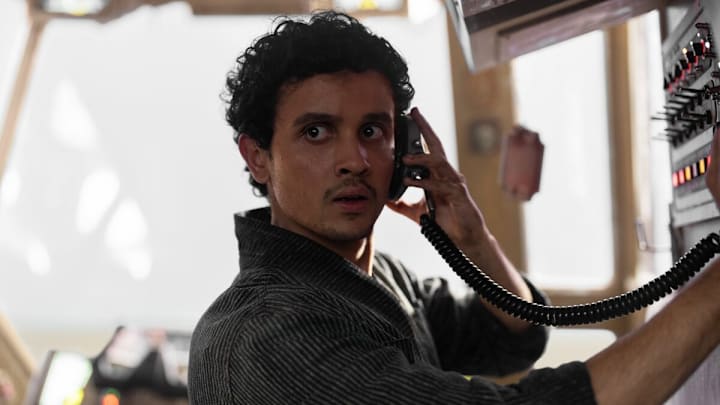WARNING: This review contains SPOILERS for the first three episodes of Andor Season 2.
Star Wars began almost 50 years ago as one relatively simple allegory for the endless fight between good and evil. That was what made it brilliant -- drawing its inspiration from real-world brutalities, then making its themes more digestible with space battles and Harrison Ford cracking jokes in every scene he stole.
Not all Star Wars has followed that exact same formula since -- especially not projects like Andor. The underlying themes threaded through every story set in a galaxy far, far away remain, as they always will. But Tony Gilroy continues to further blur the lines between the classic "good" and "evil." Cassian Andor and the budding rebellion may be on the so-called "right" side of galactic history, but that placement comes with doing evil things to achieve victory. That's always been there -- how many people were on that Death Star when Luke Skywalker blew it up, anyway? But it's more obvious here. Much more obvious in the first arc of Season 2.
In these first three episodes, the horror lies dormant in the mundane. Dedra and Syrill hosting an awkward dinner for three. Bix and crew posing as farmers. Mon and Luthen whispering in the shadows of sparkling Chandrillan wedding festivities. Cassian witnessing escalating terf wars as a hostage in the violent wilderness. Nothing much is actually happening. Star Destroyers aren't shooting at each other. Very few people are dying. And yet, so much is happening -- and it's nearly unbearable to watch because the audience knows so many bad things are going to happen soon.
It would be a slow burn if it weren't for the tension, and how it begins to break toward the end of "Harvest." Dedra finally removing her mask to all but threaten a future mother-in-law. Mon, facing a pending train wreck in nearly every area of her life, losing herself in the music -- for what does a grown woman do when everything is about to come undone? Drink, dance, dissociate, deteriorate. Cassian trying and failing to save his friends without casualties. Bix fighting for her life, her dignity, her essence in the face of masculine toxicity at its most vulgar.
Is the release schedule for this season an atrocity? Absolutely. But viewing this entire arc in one sitting does have its benefits. To feel that tension build slowly from episode to episode, knowing it will all come crashing down by the end (and still, we are somehow so tragically far from the actual end). To find yourself unable to look away as the worst parts of humanity break violently to the surface -- on our screens; in our collective consciousness.
Andor is neither an escape nor a pleasurable ride through space (thank you, Skeleton Crew, for being our beloved palate cleanser). It is a message, but not a warning -- it's far too late for that. This season of the show is, instead, a brutal showcase of what our world has already become. Fictional, fake, in space, none of that matters when the mundane lives of these characters very quickly become anything but. No longer playing house, but rather strategizing a long game. Not farmers, but survivalists. Not a hostage, but a failure. Once the mother of the bride, but now, a hollow ghost of one's former self.
If anything, Andor is the Star Wars we've always had, except louder and sharper in the most unexpected, necessary ways. It pierces the soul in ways the universe hasn't before. It is painful to witness, and that is precisely why it succeeds.
Episodes of the final season of Andor are now streaming only on Disney+.
